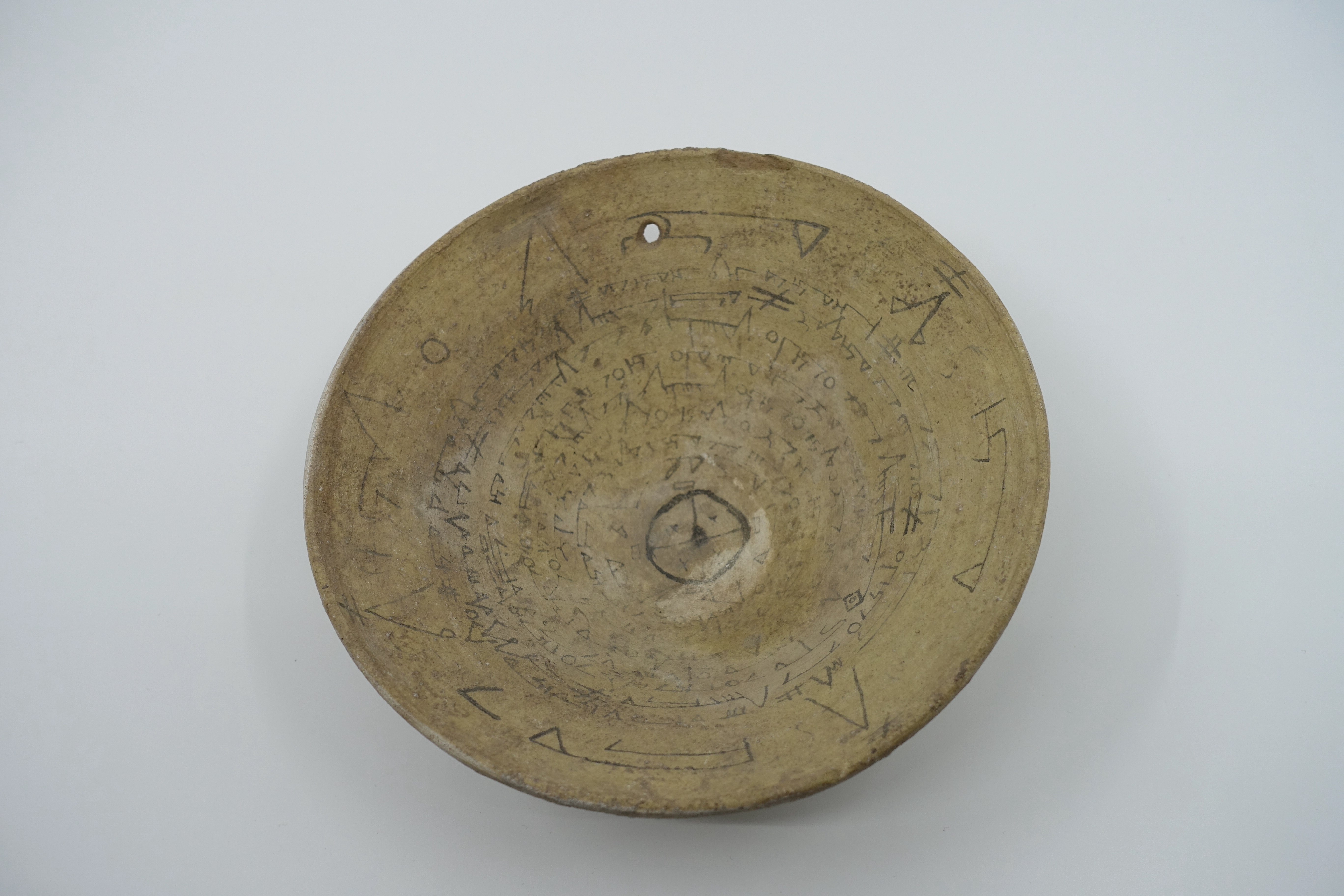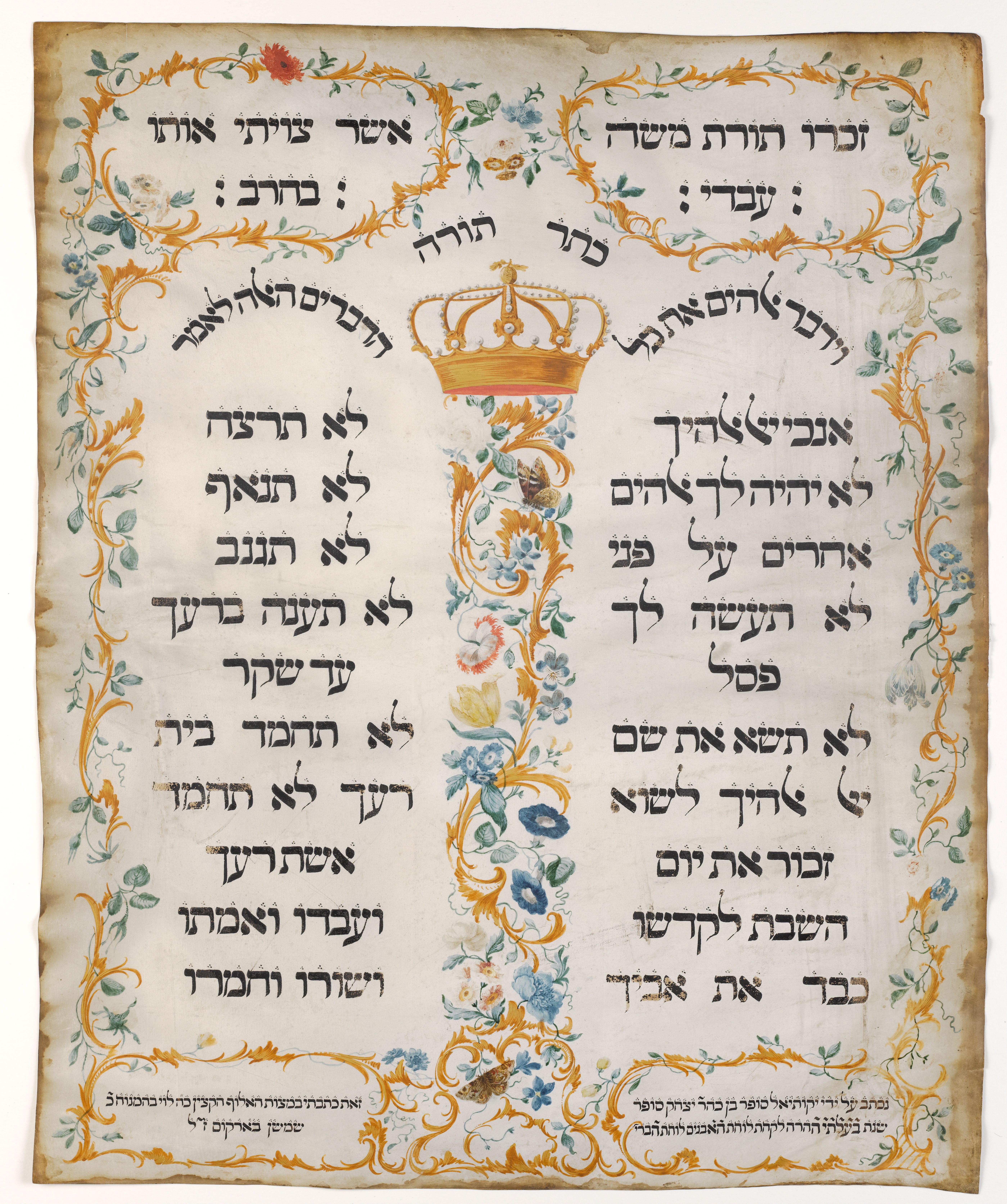|
ÿÈauma
In Mandaeism, ÿÈauma () is a term that means fasting. Although ''ÿÈauma'' can refer to physical fasting, it is more often used in Mandaeism to refer to spiritual piety and abstaining from sin. On some days of the Mandaean calendar, Mandaeans perform light fasting. Unlike the Muslim fasting during Ramadan, Mandaeans do not completely forgo food and water for long periods. Instead, Mandaeans typically perform light fasting, such as abstaining from meat during certain ''mbaÿÙÿÙal'' (inauspicious) days. Spiritual fasting The Mandaic term ''ÿÂauma Rabba'' () refers to a kind of "spiritual fasting" in which devout Mandaeans do not partake in the vices of the world and abstain from performing sinful activities. The precepts of the ''ÿÂauma Rabba'', which exemplify the Mandaean tenets of pacificism, are mentioned in Book 1 and Book 2, Chapter 1 of the ''Right Ginza''. Both have eight precepts that are identified with different parts of the body. Right Ginza Book 1 Book 1 of the ... [...More Info...] [...Related Items...] OR: [Wikipedia] [Google] [Baidu] |
Religious Fasting
Fasting is practiced in various religions. Examples include Lent in Christianity and Yom Kippur, Tisha B'av, Fast of Esther, Fast of Gedalia, the Seventeenth of Tammuz, and the Tenth of Tevet in Judaism. Muslims fast during the month of Ramadan each year. The fast includes refraining from consuming any food or liquid from the break of dawn until sunset. Details of fasting practices differ. Oriental Orthodox Christians and Eastern Orthodox Christians fast during specified fasting seasons of the year, which include not only the better-known Great Lent, but also fasts on every Wednesday and Friday (except on special holidays), together with extended fasting periods before Christmas (the Nativity Fast), after Easter (the Apostles Fast) and in early August (the Dormition Fast). Members of the Church of Jesus Christ of Latter-day Saints (Mormons) fast for a full 24-hour period once per month ã usually before the main meal on the first Saturday of the month and ending with the mai ... [...More Info...] [...Related Items...] OR: [Wikipedia] [Google] [Baidu] |
Mandaean Calendar
The Mandaean calendar is a 365-day solar calendar used by the Mandaean people.Drower, Ethel Stefana. ''The Mandaeans of Iraq and Iran''. Oxford At The Clarendon Press, 1937. It consists of twelve 30-day months, with five extra days at the end of é umbulta (the 8th month). The Parwanaya (or Panja) festival takes place during those five days. There is no leap year therefore every four years all Mandaean dates (like beginnings of the months or festivals) move one day back with respect to the Gregorian calendar. Months Each month (''iahra'' or ''yahra'') is named after a constellation (''manzalta''). The Mandaic names of the twelve constellations of the Zodiac are derived from common Aramaic roots. As with the seven planets, the constellations, frequently known as the ''trisar'' (, "The Twelve") or ''trisar malwaéÀia'' ("Twelve Constellations") in Mandaic texts, are generally not viewed favorably since they constitute part of the entourage of Ruha, the Queen of the World of Darkn ... [...More Info...] [...Related Items...] OR: [Wikipedia] [Google] [Baidu] |
Mandaeism
Mandaeism (Mandaic language, Classical Mandaic: ),https://qadaha.wordpress.com/wp-content/uploads/2021/03/nhura-dictionary-mandaic-english-mandaic.pdf sometimes also known as Nasoraeanism or Sabianism, is a Gnosticism, Gnostic, Monotheism, monotheistic and ethnic religion with Ancient Greek religion, Greek, Iranian religions, Iranian, and Judaism, Jewish influences. Its adherents, the Mandaeans, revere Adam#In Mandaeism, Adam, Abel#Mandaean interpretation, Abel, Seth#Mandaeism, Seth, Enos (biblical figure)#In Mandaeism, Enos, Noah#Mandaeism, Noah, Shem#In Mandaeism, Shem, Aram, son of Shem, Aram, and especially John the Baptist#Mandaeism, John the Baptist. Mandaeans consider Adam, Seth, Noah, Shem, and John the Baptist prophets, with Adam being the founder of the religion and John being the greatest and Last prophet, final prophet. The Mandaeans speak an Eastern Aramaic languages, Eastern Aramaic language known as Mandaic language, Mandaic. The name 'Mandaean' comes from th ... [...More Info...] [...Related Items...] OR: [Wikipedia] [Google] [Baidu] |
Fasting
Fasting is the act of refraining from eating, and sometimes drinking. However, from a purely physiological context, "fasting" may refer to the metabolic status of a person who has not eaten overnight (before "breakfast"), or to the metabolic state achieved after complete digestion and absorption of a meal. Metabolic changes in the fasting state begin after absorption of a meal (typically 3ã5 hours after eating). A '' diagnostic fast'' refers to prolonged fasting from 1ã100 hours (depending on age), conducted under observation, to facilitate the investigation of a health complication (usually hypoglycemia). Many people may also fast as part of a medical procedure or a check-up, such as preceding a colonoscopy or surgery, or before certain medical tests. '' Intermittent fasting'' is a technique sometimes used for weight loss or other health benefits that incorporates regular fasting into a person's dietary schedule. Fasting may also be part of a religious ritual, often asso ... [...More Info...] [...Related Items...] OR: [Wikipedia] [Google] [Baidu] |
Fasting In Islam
In Islam, fasting (known as , ; or , ; ) is the practice of abstaining, usually from food, drink, sexual activity and anything that substitutes food and drink. During the holy month of Ramadan, is observed between dawn and sunset when the of the Maghrib prayer is called. Ramadan is the ninth month of the Muslim lunar calendar and fasting is a requirement for Muslims as it is the fourth of the five pillars of Islam. Introduction Religious fasting is not a uniquely Muslim practice; it has been practiced for centuries by religions such as Christianity, Confucianism, Hinduism, Judaism, and Taoism, among others. It is stated in the Quran that Allah says: Some cultures in North America fasted to serve as penance for sin and avert catastrophes. The official practices of the Inca Empire and many indigenous peoples of Mexico observed fasts to appease their gods. Former nations such as Assyrians and Babylonians observed fasting as a form of penance. Jews observe fasting as a form ... [...More Info...] [...Related Items...] OR: [Wikipedia] [Google] [Baidu] |
Ramadan
Ramadan is the ninth month of the Islamic calendar. It is observed by Muslims worldwide as a month of fasting (''Fasting in Islam, sawm''), communal prayer (salah), reflection, and community. It is also the month in which the Quran is believed to have been revealed to the Prophets of Islam, Islamic prophet Muhammad. The annual observance of Ramadan is regarded as one of the five pillars of Islam and lasts twenty-nine to thirty days, from one sighting of the Hilal (crescent moon), crescent moon to the next. Fasting from dawn to sunset is obligatory (''fard'') for all adult Muslims who are not acute illness, acutely or chronic illness, chronically ill, travelling, old age, elderly, breastfeeding, Pregnancy, pregnant, or Menstruation in Islam, menstruating. The predawn meal is referred to as ''suhur'', and the nightly feast that breaks the fast is called ''iftar''. Although rulings (''fatawa'') have been issued declaring that Muslims who live in regions with a midnight sun or pola ... [...More Info...] [...Related Items...] OR: [Wikipedia] [Google] [Baidu] |
Mandaic Language
Mandaic, or more specifically Classical Mandaic, is the liturgical language of Mandaeism and a South Eastern Aramaic variety in use by the Mandaean community, traditionally based in southern parts of Iraq and southwest Iran, for their religious books. Mandaic, or Classical Mandaic, is still used by Mandaean priests in liturgical rites. The modern descendant of Mandaic or Classical Mandaic, known as Neo-Mandaic or Modern Mandaic, is spoken by a small group of Mandaeans around Ahvaz and Khorramshahr in the southern Iranian Khuzestan province. Liturgical use of Mandaic or Classical Mandaic is found in Iran (particularly the southern portions of the country), in Baghdad, Iraq and in the diaspora (particularly in the United States, Sweden, Australia and Germany). It is an Eastern Aramaic language notable for its abundant use of vowel letters (''mater lectionis'' with ''aleph'', ''he'' only in final position, ''ãayin'', ''waw'', ''yud'') in writing, so-called ''plene'' spelli ... [...More Info...] [...Related Items...] OR: [Wikipedia] [Google] [Baidu] |
Pacificism
Pacificism is the general term for ethical opposition to violence or war unless force is deemed necessary. Together with pacifism, it is born from the Western tradition or attitude that calls for peace. The latter involves the unconditional refusal to support violence or absolute pacifism, but pacificism views the prevention of violence as its duty but recognizes the controlled use of force to achieve such objective. According to Martin Ceadel, pacifism and pacificism are driven by a certain political position or ideology such as liberalism, socialism or feminism. Ceadel has categorized pacificism among positions about war and peace, ordering it among the other categories: * Militarism (violence normalized) * Crusading ( interventionism; violence used as a tool) * Defensivism (violence prevention) * Pacificism (violence prevention and abolition) * Pacifism (violence rejection) Development Pacificism ranges between total pacifism, which usually states that killing, violence or ... [...More Info...] [...Related Items...] OR: [Wikipedia] [Google] [Baidu] |
Right Ginza
The Right Ginza () is one of the two parts of the Ginza Rabba, the longest and the most important holy scripture of Mandaeism. The other part of the Ginza Rabba is the Left Ginza. Summaries of each book (or tractate), based mostly on HûÊberl (2007), are provided below.HûÊberl, Charles G. (2007). Introduction to the New Edition, in The Great Treasure of the Mandaeans, a new edition of J. Heinrich Petermann's Thesaurus s. Liber Magni, with a new introduction and a translation of the original preface by Charles G. HûÊberl'. Gorgias Press, LLC. Translated excerpts are from Gelbert (2011), which is mostly based on Lidzbarski (1925), while Mandaic transliterations are derived from Gelbert (2011, 2021). Opening lines of each chapter are provided below, since Mandaeans often refer to Mandaic prayers by their opening lines. Book 1 Book 1 contains a history of creation and of Mandaeism. The book begins with the opening line (also in Chapter 2 of Book 1): :Praised be Thou, my Lord, w ... [...More Info...] [...Related Items...] OR: [Wikipedia] [Google] [Baidu] |
Ta'anit
A ta'anit or taynis (Biblical Hebrew ''taò¢aniÿ₤'' or æÎæø¿æ ''ÿÈom'') is a fast in Judaism in which one abstains from all food and drink, including water. Purposes A Jewish fast may have one or more purposes, including: * Atonement for sins: Fasting is not considered the primary means of acquiring atonement; rather, sincere regret for and rectification of wrongdoing is key. Nevertheless, fasting is conducive to atonement, for it tends to precipitate contrition. Therefore, the Bible requires fasting on Yom Kippur. Because, according to the Hebrew Bible, hardship and calamitous circumstances can occur as a result of sin, fasting is often undertaken by the community or by individuals to achieve atonement and avert catastrophe. Most of the Talmud's Tractate ''Ta'anit'' ("Fast ) is dedicated to the protocol involved in declaring and observing fast days. * Commemorative mourning: Most communal fast days that are set permanently in the Jewish calendar serve this purpose. These fa ... [...More Info...] [...Related Items...] OR: [Wikipedia] [Google] [Baidu] |
Ten Commandments
The Ten Commandments (), or the Decalogue (from Latin , from Ancient Greek , ), are religious and ethical directives, structured as a covenant document, that, according to the Hebrew Bible, were given by YHWH to Moses. The text of the Ten Commandments appears in three markedly distinct versions in the Bible: at Exodus , Deuteronomy , and the " Ritual Decalogue" of Exodus . The biblical narrative describes how God revealed the Ten Commandments to the Israelites at Mount Sinai amidst thunder and fire, gave Moses two stone tablets inscribed with the law, which he later broke in anger after witnessing the worship of a golden calf, and then received a second set of tablets to be placed in the Ark of the Covenant. Scholars have proposed a range of dates and contexts for the origins of the Decalogue. ãThree main dating schemes have been proposed: (1) it was suggested that the Decalogue was the earliest legal code given at Sinai, with Moses as author, and the Amphictyony con ... [...More Info...] [...Related Items...] OR: [Wikipedia] [Google] [Baidu] |






